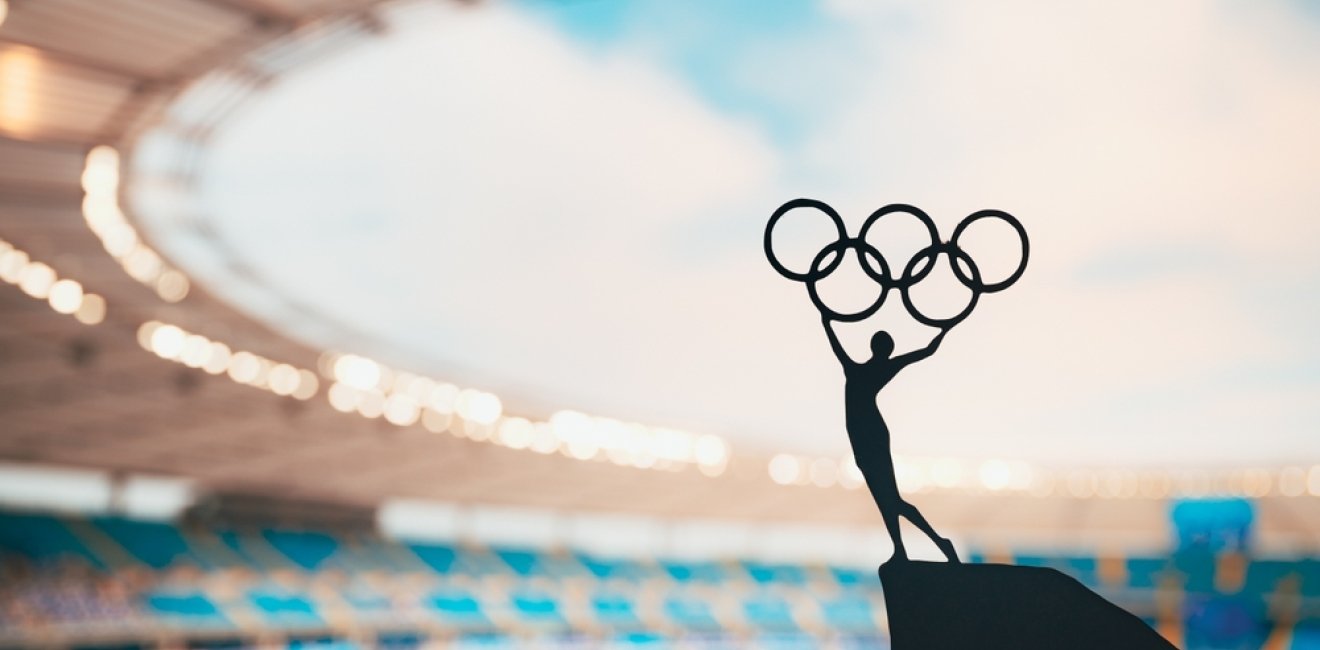Afghan women athletes in the diaspora have been a powerful show of freedom of mobility and expression. Yet, women inside the country won’t get to partake in these freedoms.
“By participating in the Paris games, I will show the power of Afghan women to the world,” Yulduz Hashimi told the Irish Times. Yulduz is part of the six-person team, alongside her sister, Fariba, sprinter Kimia Yousofi, and three male athletes, representing Afghanistan in the 2024 Paris Olympics. This year marks the first Olympics to achieve total gender parity, with exactly 5,250 male athletes and 5,250 female athletes.
In Afghanistan, women are banned from participating in sports. This is one of nearly 100 Taliban edicts that segregate and restrict women from participating in public life—a system characterized as gender apartheid. When forming the team from Afghanistan, the International Olympic Committee (IOC) consulted the now-exiled National Olympic Committee instead of the Taliban. In turn, the Taliban does not recognize the full team. “Only three athletes are representing Afghanistan,” said a regime spokesperson. By supporting an Afghan team comprised of an equal number of men and women, the Olympic Committee, and by extension, participating countries, signaled to the Taliban that their institution of gender apartheid is unacceptable and does not align with universal principles of human rights and gender equality.
Sadly, for a regime that does not care about its international obligations and image, virtue-signaling is unlikely to be an effective tool. What’s more is that soft signals like exclusion from international socio-cultural events are undermined when official international bodies and governments sideline women from political negotiations and leave women’s rights off the agenda.
Virtue-signaling on the global stage
Sports play a critical role virtue-signaling on the global stage. One only has to remember the backlash against Saudi Arabia hosting the Women’s Tennis Association finals. Tennis champions and women’s rights advocates, including Chrissie Evert and Martina Navratilova, spoke out against the decision by WTA, declaring that they “did not help build women’s tennis for it to be exploited by Saudi Arabia.” They objected to hosting the finals in Saudi Arabia on the grounds that WTA’s values do not match those of a country “where the current landscape includes a male guardianship law that essentially makes women the property of men,” “criminalizes the LGBTQ community to the point of possible death sentences,” and whose long-term record on human rights and basic freedoms has been a matter of international concern for decades.” They argued that by hosting the finals in Saudi Arabia, WTA would be complicit in “sportswashing,” or using sports to superficially boost their reputations without accompanying reform.
The backlash was so severe that Saudi ambassador to the United States, Princess Reema bint Bandar Al Saud, issued an official statement, published on the Embassy of Saudi Arabia in Washington, DC's website, in response to the op-ed. “Failing to acknowledge the great progress women have made in Saudi Arabia denigrates our remarkable journey. Like many women around the world, we looked to the legends of tennis as trailblazers and role models...glimmers of hope that women truly could achieve it all,” she wrote.
Saudi Arabia—unlike Afghanistan—cares deeply about its international image. One of the goals of its Vision 2030 is to make the country a global business hub; naturally, this requires buy-in from its global partners. Targeted investment in sports is one of these dual economic and PR strategies. Another is elevating its status as a leader in gender parity and women’s rights. Hosting the WTA finals is a win for Saudi Arabia on both those fronts, and an issue they were compelled to respond to given their strategic priorities.
The Saudi Ambassador referenced strides in female labor force participation (300,000 women-owned businesses) as well as investments in sports development for women. “We are investing and committing to sport as part of a comprehensive program to be the best version of ourselves…we should strive to make it better every day, from encouraging girls to pick up a racket to providing breast cancer awareness in rural areas or creating a curriculum for women to gain financial literacy.”
In sports, witnessing female athletes can encourage young girls to challenge the status quo and participate in sports, which, in turn, has a host of benefits from delayed marriage to improved physical and mental health. This is one of the arguments Princess Reema made for why Saudi Arabia should host the WTA finals: through exposure, norms can change. Role-modeling is indeed proven to be one of the most powerful levers of social and gender norm change. Through exposure to positive deviants, women and girls (as well as men and boys) can see a new horizon of possibility for gender roles and norms.
In writing their op-ed Evert and Navratilova had hoped that the symbolism of excluding Saudi Arabia would dial up the pressure on them to reform their laws. While exclusion from international tournaments certainly sends a strong message, alone it cannot change a state’s domestic laws—at least in the short term.
Ultimately, WTA moved forward with the Saudi deal; the country will host the WTA finals for the next three years and the prize money increased by 70% to 15.25 million USD. For a country that claims to be committing to reforming women’s rights, one can hope that inclusion in these sports tournaments can have positive long-term effects.
Are symbolic wins significant?
In the face of an increasingly repressive Taliban regime, Afghan women athletes in the diaspora have been a powerful show of freedom of mobility and expression. Their participation in the Olympics is also an impressive show of solidarity with the Afghan people—especially, Afghan women and girls. Yet, those same women and girls in the country won’t get to partake in these freedoms. If they do, they risk imprisonment, torture, and death.
In the case of Afghanistan, the symbolic significance of a gender-equal Olympic team is undermined by ongoing efforts to engage with the Taliban. In June, the third round of the UN’s Doha Process was held, and the Taliban participated for the first time. No women were part of the UN delegation, nor were women’s rights part of the public agenda—concessions to bring the Taliban to the table. Despite mass outcry from women human rights defenders globally, it seemed as if the UN, and other major international actors were en route to normalize the regime and their system of gender apartheid. However, according to Under-Secretary-General for Political and Peacebuilding Affairs Rosemary DiCarlo, who presided over Doha III, “this meeting and this process of engagement does not mean normalization or recognition.”
Some, like former Olympian Friba Rezayee, argue that including teams representing Afghanistan, even if under a flag that the Taliban does not recognize, risks legitimizing the regime. Rezayee argues that the Olympics should bar any teams representing Afghanistan, like they did in 2000, and instead have its athletes compete on the Refugee Olympic Team. Yet, even barring the country is rendered ineffective without substantial political pressure on the regime on all fronts.
When it comes to a path forward with the Taliban, the international community suffers from schizophrenic thinking. Some argue isolation is the only way to go, which might entail the total bans Rezayee argues for. Others push for conditioned engagement, like what we saw in Doha. In either case, for a regime that is so steadfast in its commitment to oppress women, substantial incentives—something greater than symbolism—must be deployed to enact real pressure and elicit change.
The views represented in this piece are those of the author and do not express the official position of the Wilson Center.








